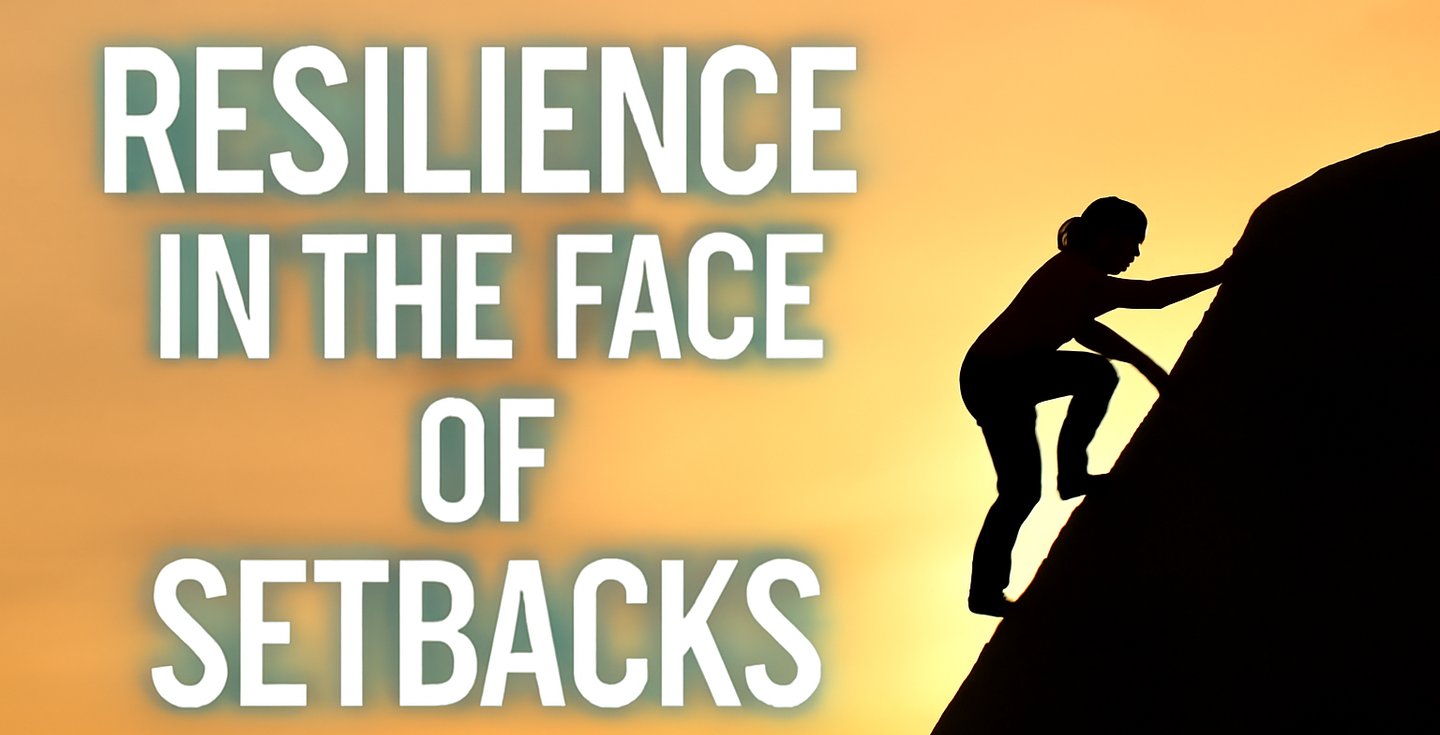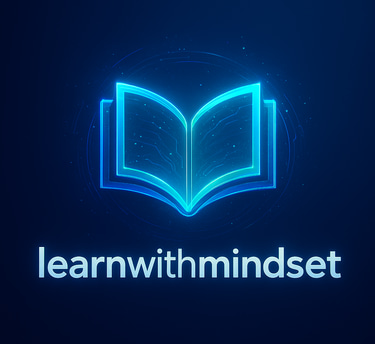
Resilience in the Face of Setbacks: Overcoming Life's Challenges with Strength and Perseverance
Life is a journey full of highs and lows. There are moments of joy and success, but there are also inevitable setbacks that can shake us to our core. Whether it's a personal loss, professional failure, or a sudden life change, setbacks challenge our mental strength and test our ability to move forward. However, it’s in these very moments of difficulty that our true resilience is forged.
7/26/2025



Resilience in the Face of Setbacks: Overcoming Life's Challenges with Strength and Perseverance
Life is a journey full of highs and lows. There are moments of joy and success, but there are also inevitable setbacks that can shake us to our core. Whether it's a personal loss, professional failure, or a sudden life change, setbacks challenge our mental strength and test our ability to move forward. However, it’s in these very moments of difficulty that our true resilience is forged.
Resilience is often seen as the ability to bounce back from adversity, but it’s more than just a return to what was. It’s about growth, transformation, and becoming stronger than we were before the setback occurred. Resilience is not a skill we are born with; it is something we can develop through our experiences, mindset, and choices.
Understanding Resilience
At its core, resilience is the ability to withstand or recover from difficult situations. But true resilience is not about ignoring pain or pretending everything is okay when it’s not. Instead, it’s about acknowledging the pain, learning from it, and finding the strength to rise again.
Think of a tree that bends during a storm. While it might seem as though it is being bent to the point of breaking, its roots grow deeper, and over time, it becomes stronger, more grounded. Similarly, we may feel bent by life’s challenges, but when we face those challenges with resilience, we emerge stronger, wiser, and more rooted in our purpose.
The Role of Mindset in Building Resilience
The first step in building resilience is understanding the power of mindset. Our thoughts shape our reality, and how we interpret setbacks influences our ability to bounce back. A fixed mindset, where we see failure as an endpoint, can lead to discouragement and hopelessness. On the other hand, a growth mindset—where we see setbacks as opportunities for growth and learning—helps us develop resilience.
When we adopt a growth mindset, we start to view challenges as stepping stones rather than obstacles. Instead of asking, “Why did this happen to me?” we begin to ask, “What can I learn from this?” This shift in perspective is powerful because it turns every setback into a lesson, every struggle into a chance to become better.
Embracing the Pain: Why it’s Essential to Move Forward
Resilience doesn’t mean denying the pain or rushing to "move on" from it. It’s important to acknowledge the hurt, confusion, and frustration that come with setbacks. Feeling pain is a natural human response, and suppressing it can only make it worse in the long run. Embracing the pain means accepting that setbacks are a part of life and giving yourself permission to grieve, reflect, and heal.
Take a moment to reflect on your own setbacks. What were some of the toughest moments you’ve faced? Whether it was a failure in your career, a personal disappointment, or a setback in your health, the key is to not let the pain define you. Instead, let it refine you. Use it as fuel to build your resilience and push forward with even greater strength.
Building Emotional Strength: The Pillars of Resilience
1. Self-Awareness: Resilient individuals are in tune with their emotions and recognize when they need support. Self-awareness helps you identify when you’re feeling overwhelmed or stuck, so you can take the necessary steps to regain your balance. By acknowledging your emotional state, you can process your feelings rather than let them control you.
2. Optimism: Having a hopeful outlook on life is crucial to resilience. It’s easy to fall into negativity when things go wrong, but optimism doesn’t mean ignoring challenges—it’s about believing that things can improve and that you have the ability to make a difference. Optimism is the foundation of resilience because it encourages you to keep going even when the going gets tough.
3. Self-Compassion: Many of us are our own harshest critics. After a setback, it’s easy to feel like we’re not good enough or that we’ve failed. Practicing self-compassion means treating yourself with the same kindness and understanding that you would offer a friend in a similar situation. Instead of focusing on what went wrong, remind yourself of your strengths, progress, and potential.
4. Support Systems: No one becomes resilient alone. It’s important to surround yourself with people who uplift and encourage you. Resilient individuals seek support when they need it and lean on their friends, family, or mentors for guidance. Whether through a listening ear, words of encouragement, or practical advice, your support system is an essential part of your resilience-building journey.
5. Flexibility: Life doesn’t always go according to plan, and the ability to adapt to changing circumstances is a vital aspect of resilience. Being flexible means being open to new ideas, alternative paths, and different ways of achieving your goals. Instead of feeling defeated when your original plan falls through, see it as an opportunity to explore new possibilities.
Turning Setbacks Into Opportunities
One of the most powerful aspects of resilience is its ability to turn setbacks into opportunities. When faced with adversity, it’s easy to see the situation as a dead-end. But the most resilient individuals learn how to pivot and find new ways forward. Every setback presents an opportunity to develop new skills, broaden your perspective, and discover untapped strengths.
For example, imagine someone who has been laid off from their job. While the initial reaction may be fear and uncertainty, resilient people take this as an opportunity to reassess their career goals, learn new skills, or even start a new venture. What may have initially felt like a loss becomes a springboard for future growth and success.
The Science of Resilience
Research in psychology and neuroscience has shown that resilience is not just an abstract concept—it’s something that can be developed and strengthened over time. Studies have found that people who cultivate resilience have lower levels of stress, better mental health, and higher levels of well-being. Additionally, resilience has been linked to a greater ability to cope with trauma, loss, and life’s inevitable challenges.
One of the key factors in resilience is the ability to regulate emotions. This means managing stress, staying calm under pressure, and not allowing negative emotions to overwhelm you. By practicing mindfulness, relaxation techniques, and positive thinking, you can build your emotional resilience over time.
Final Thoughts: Rising Above Life’s Setbacks
In conclusion, resilience is not a trait reserved for the lucky few—it’s something that each of us can develop with the right mindset, tools, and support. Setbacks are an inevitable part of life, but they don’t have to define our future. By embracing challenges, building emotional strength, and learning from our experiences, we can emerge from setbacks more resilient, more focused, and more determined to succeed.
So, the next time life knocks you down, remember that resilience is not about avoiding the fall—it’s about getting up stronger, wiser, and more prepared for whatever comes next. Embrace the journey, with all its highs and lows, and trust that each setback is just another opportunity to rise above.
Growth
Empowering minds through education and inspiration.
© 2025. All rights reserved.
Mrs. Sadhana Ware
Contact Us :

